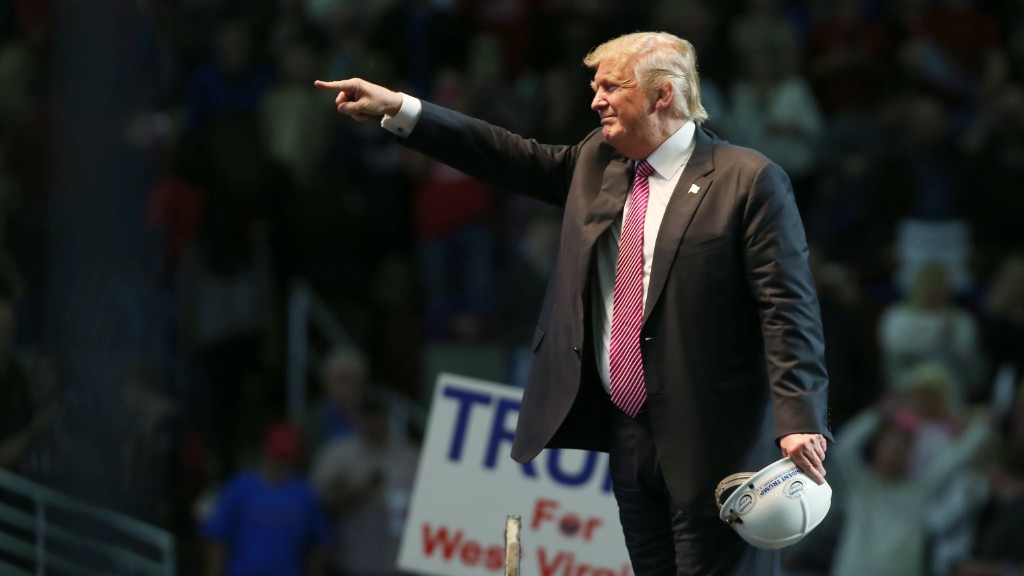
The great bull run for bonds, decades in the making, might finally be coming to an end.
And that could mean higher inflation is on the way -- thanks to stimulus proposed by President-elect Donald Trump and a likely rate hike from the Federal Reserve.
The 10-Year Treasury is now yielding more than 2.5%. It hasn't been that high since September 2014. Investors have been selling bonds, which pushes their yields higher, since the summer. The bond slump has intensified following the election.
Yields were hovering around 1.8% a month ago. They hit a record low of 1.34% back in July.
Many experts think that yields will be above 3% before long. Investors are feverishly dumping bonds to buy stocks.
If rates go a lot higher, it would impact how much interest consumers would have to pay for mortgages, credit cards and a variety of other types of loans.
The steady rise in rates has "only just begun," said Michael Hartnett, chief investment strategist at Bank of America Merrill Lynch, at an event last week.
Trump is expected to push for up to $1 trillion from Congress to upgrade bridges, roads and other parts of the nation's transportation infrastructure. Experts believe that the U.S will have to finance much of that spending through debt.
Related: Trump market rally could be derailed unless...
At the same time, the Fed is widely expected to raise its key interest rate later this week for the first time in a year. Fed chair Janet Yellen may also signal that more rate increases will be coming throughout 2017.
Commodity prices -- especially oil -- have already started to climb as well. That's partly due to expectations of higher rates and the stronger dollar that should accompany them.
But will this hurt consumers? That depends.
Higher inflation doesn't have to be a problem if the economy actually picks up more steam.
Still, some worry that inflation could become a major headache if bond yields spike dramatically. Investing guru Jeff Gundlach of Doubleline Capital warned after the election that Trump's policies could cause rates to go as high as 6% over the next few years.
Other experts are also worried that bond yields will shoot a lot higher and lead to runaway inflation in the process.
"By no means will Trump's economic plans offset the bursting of an epic bond bubble that was 35 years in the making," wrote Michael Pento, president and founder of Pento Portfolio Strategies, in a report Monday.
Related: The debt part is over. Here comes the hangover
"Nor will protectionist trade policies and massive deficit spending rectify the economic imbalances manifest from 8 years' worth of artificial credit offered for free," Pento added.
Bond expert Bill Gross of Janus is concerned about the inflationary impact that Trump's stimulus will have on the broader economy. It could be good in the short-term but backfire over the long haul.
"Many aspects of Trump's agenda are good for stocks and bad for bonds near term -- tax cuts, deregulation, fiscal stimulus, etc.," Gross wrote in his most recent monthly note to clients last week.
"But longer term, investors must consider the negatives of Trump's anti-globalization ideas which may restrict trade and negatively affect corporate profits. In addition, the strong dollar weighs heavily on globalized corporations," he added,
So if Trump -- and the Fed -- wind up making inflation great again with policies that boost interest rates and the dollar too far too fast, that could be bad news for consumers and investors.
-- CNN's Heather Long contributed to this story.





